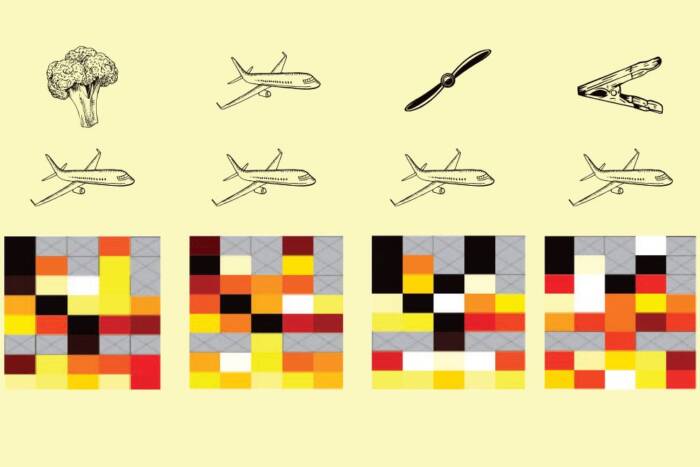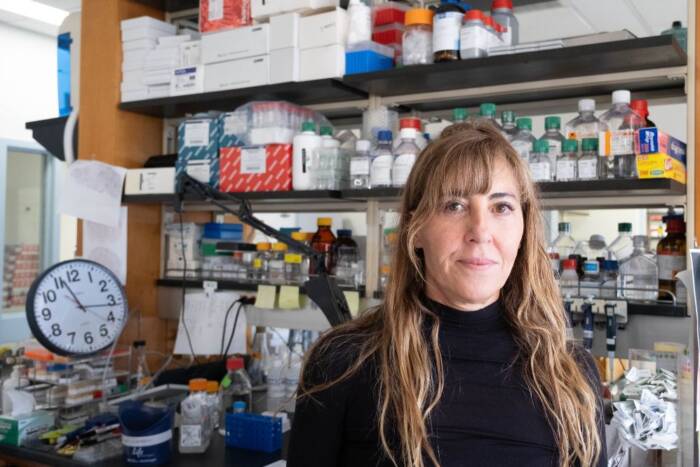35 labs and counting: How the Robertson Therapeutic Development Fund speeds translational research at Rockefeller
by Alexandra MacWade, assistant editor
Developing a new medical product is a complex, high-risk endeavor. Of the thousands of clinically promising concepts scientists formulate each year, only a small fraction move beyond the lab. The Robertson TDF was created to advance work that has gone beyond the basic research stage but is still too early to draw the industrial or venture capital needed to translate the findings into the clinic.
“There are very few funds in the country that do anything like this,” says Bruce Conway, the Robertson TDF’s program director. “By supporting this kind of work, the Robertson Fund is creating significant opportunities for our researchers to realize the potential of their discoveries to ultimately benefit patients.”
An educational process
Two types of awards are given through the Robertson TDF: early clinical development grants, which will pay for drug scale-up, toxicology testing, and, in some cases, phase I clinical trials, and proof-of-concept funding, given to jump-start initiatives aimed at identifying and validating potential therapeutic targets and identifying therapeutic leads.
The proof-of-concept awards are given out twice a year following a review process led by an independent committee of experts from the pharmaceutical, biotech, and life sciences investment industries. So far, 86 proof-of-concept and two early clinical development awards have been approved for funding. The next request for proposals for proof-of-concept awards will be issued in June.
According to Dr. Conway, the feedback that applicants receive from industry reviewers can be a rewarding and educational part of the application process. In fact, many members of the review panel go on to advise applicants, and several have helped investigators shape their business concepts.
A boost for tech transfer
Since the fund was established, the number of confidential disclosure agreements, which are entered by individuals and companies who may wish to invest in a particular technology, has risen from about 50 per year to more than 80.
“The increase in traffic in our office directly attributable to the Robertson TDF has been tremendous,” says Kathleen Denis, associate vice president for the Office of Technology Transfer. Her team is responsible for the protection and further development of technologies created by the university’s researchers, including projects stemming from the Robertson TDF. “We expected good results from this funding but have been surprised by the volume of interested companies and venture funds seeking out these projects.”
Some notable projects
With support from a Robertson TDF early clinical development award, Marina Caskey, an assistant professor of clinical investigation in Michel Nussenzweig’s lab, is leading efforts to advance two drugs against HIV-1 from the laboratory to clinical trials at The Rockefeller University Hospital. These therapies are based on neutralizing monoclonal antibodies that target two different sites on the outer coating of the virus. When used together, they provide coverage against 96 percent of viral strains.
In a recent study(opens in new window), Dr. Caskey’s group showed that one of the antibodies, 3BNC117, can interfere with chronic HIV infection in ways that traditional antiretroviral therapy does not, suggesting it might lead to long-term control of HIV infection.
Meanwhile, Manish Ponda, an assistant professor of clinical investigation in the lab of Jan Breslow, has been working to understand why kidney disease accelerates atherosclerosis. This research led him and his colleagues to discover a new therapeutic target for autoimmune disease. With Dr. Conway’s help, they built a team of experienced consultants and veteran medicinal chemists to develop new compounds demonstrating efficacy in an animal model.
“The team is now on a committed track toward human studies to treat autoimmune disease,” Dr. Conway says. He explains that traditional funding mechanisms often don’t support a project’s transitioning from experimental science to drug development, and the Robertson TDF has proven to be an invaluable catalyst for bridging this funding gap between discovery and therapy.
“We identified a plasma enzyme as a new therapeutic target for autoimmune disease, but there were no tool compounds we could use in vivo to better understand our biologic discovery. The Robertson TDF has transformed the lack of a tool compound from a barrier into an incredible opportunity to treat immune-mediated disease,” says Dr. Ponda.
Shruti Naik, a postdoc in Elaine Fuchs’s lab, studies how epidermal stem cells contribute to skin diseases such as psoriasis and atopic dermatitis. With a Robertson TDF proof-of-concept award, she was able to create a sophisticated method that uses CRISPR-Cas9 technology to identify new therapeutic targets. Dr. Naik and her team have been able to leverage their Robertson TDF awards to secure follow-on funding from the National Psoriasis Foundation and the Pfizer ASPIRE program. To date, eight heads of lab have received $4.5 million in follow-on funding, and three postdocs have also received support.
And in Thomas Sakmar’s lab, research associate W Vallen Graham has been studying so-called “protein-folding” diseases, such as Alzheimer’s disease, Parkinson’s disease, and type 2 diabetes, which are associated with the aggregation of proteins into amyloid fibrils. With an advanced proof-of-concept award from the Robertson TDF, the Sakmar lab has invented a new technology for creating monoclonal antibodies that potentially could be used in the clinic to detect disease early. Parallel work to develop novel therapeutic monoclonal antibodies is being supported through the Pfizer Centers for Therapeutic Innovation program in collaboration with Pfizer Neuroscience. The Sakmar lab is also developing a joint human subjects research study on peripheral amyloidosis syndromes in collaboration with New York-Presbyterian Hospital at Columbia University.
All Rockefeller clinical scholars, postdoctoral fellows, and research faculty are eligible for Robertson TDF awards. For more information on the program, please contact Dr. Conway(opens in new window).


